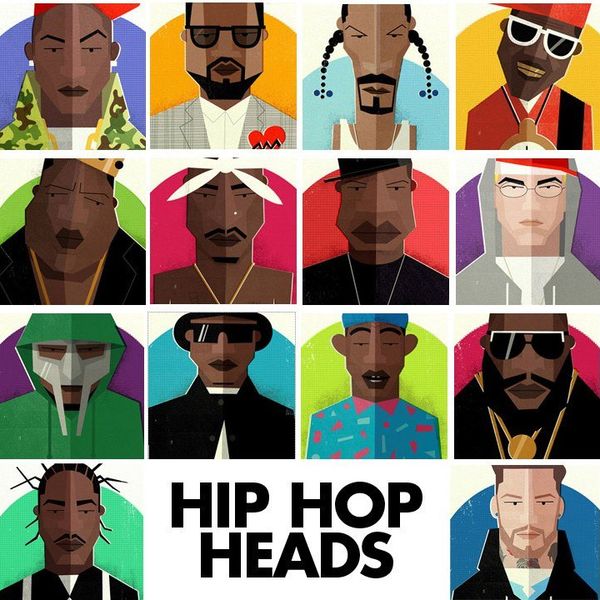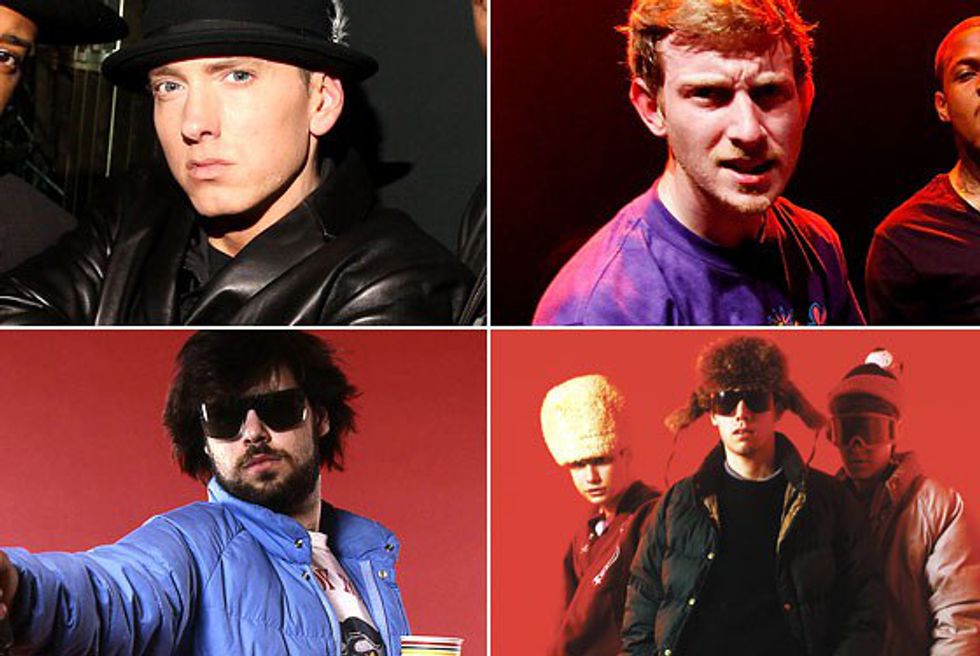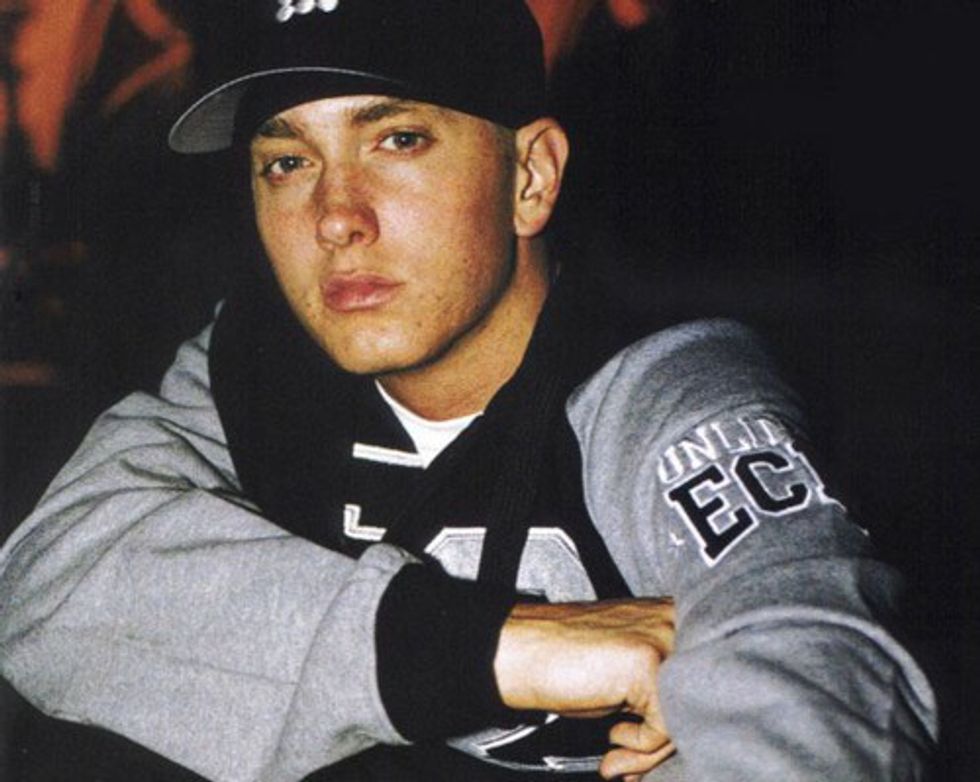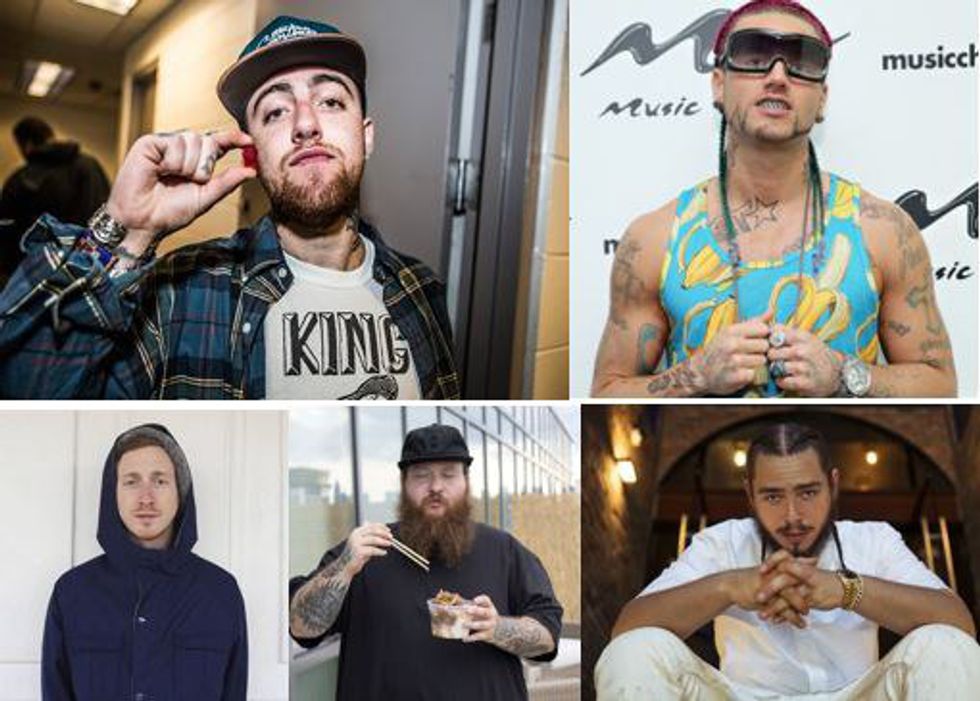The tale that is hip hop began simply like this: A bunch of kids from the Bronx put together a back to school party. That fickle spark that ignited as a neighborhood powerhouse would eventually spread as international wildfire. This beautiful art movement meshed together the sounds, cultures, and social/political issues of African Americans that plagued the environment around them. Pioneers like Kool Herc, Grandmaster Flash, Kurtis Blow, and many more craftsmen ushered in the pivotal pillars (DJing, MCing, Graffiti, and Breaking) which have evolved overtime to what we know hip-hop to be today. Throughout the aging of the art and though its origins are black, there skilled rappers who ethically define themselves as Caucasian.
The release of Post Malone's new mixtape August 26th, and a brief conversation I had with a close friend of mine is honestly the inspiration behind this article. White rappers are one the most satirized, and ridiculed in the music industry. We can debate all day long about appropriation, but when it comes down to it music has no color. What defines the hues and contrasts is the the ability asserted into rapping. That line between ability and color is blinded by many because of the history of music, artists who do not prove the form any justice, represent anything it originally stood for, or do not promote/allude to the original peoples of hip hop. In essence, white rappers really have to go above and beyond, and can't come out with weak material. If you've seen the movie 8 Mile or any battle rap sequence, you'd know if you choke as a rapper things get ugly fast. Oh and before I move on, if anybody doesn't know who Post Malone is, he made the song "White Iverson". If that still doesn't ring a bell, just know he's this guy.
Now, back to Caucasians gaining reputable ground in Hip Hop. There are two things in mind when individuals combine the words original, white, and rap. Usually it's Eminem and The Beastie Boys and there's a reason why. The two artists shaped the idea of mainstream white hip hop artists. I know some of you might be thinking "What about Vanilla Ice?". Ice had his moment, but he hasn't shared the light that these artists have had in terms of constant and relevant success. They garnered themselves in the craft of rapping, and became respected artists who have a signature style that stands in hip hop history.
But Marshal Mathers III a.k.a Eminem, was an absolute hip hop phenomenon that many considered to be highly influential. There was a time where the Detroit MC was literally everywhere. He introduced a new perspective to the rapping while honoring those who helped shaped the art. He respected those who came before and many respected him. The 'Slim Shady' became a cultural icon, and became one of the most successful hip hop artists of all time. Being the protege of Dr. Dre, his lyrical ability, and the dynamic nature of his raps, embellished Mathers with earned respect from all facets of music. The success of Mathers both commercially and socially (among other rappers) did not come easily. He was still scrutinized by die hard hip hop heads, and by many for his personal lifestyle. Pop culture in the early 2000's exploded with the idea of white rappers due to Eminem, and often exploited parodies based from Shady. Remember movies like "Malibu's Most Wanted," and Ali G? They both illustrated imitations of rap culture within white characters. Through all of the jokes and ridicule, Mathers really proved himself far beyond expectations, and is considered one of the best spitters in Hip Hop.
Today, there are many white rappers who respect the art they craft in and those who came before. In this contemporary scheme, white MC's range in different intervals of hip hop. From the ultimate club bangers, to chill suburban tones, its almost interchangeable how these artists are now. Mac Miller, Riff Raff, Asher Roth, Action Bronson, and Post Malone are respected white MCs. They have proved themselves either though bars or what they represent in the hip hop industry, and what the art originally represented. Through creativity, hip hop is an available asset to all who revere the masterpiece. It's an expression of the daily things we see and experienced or have experienced. Remember, these MCs are by-products of the creation that happened in the South Bronx. Though they're not of the same color as the originators, it's their rapping abilities that enable those who listen to understand the mutual respect for hip hop that's globally shared.

























